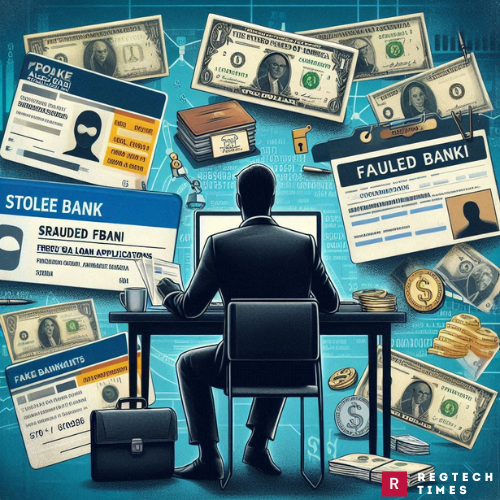Hector Garcia, a 52-year-old from Ocala, Florida, has been sentenced by a federal court for his role in a significant fraud scheme that targeted Small Business Administration (SBA) disaster funds. This case highlights significant efforts to combat pandemic-related fraud and showcases the effectiveness of law enforcement coordination in tackling such crimes.
Case Background: Hector Garcia’s Fraudulent Scheme
Hector Garcia was sentenced by U.S. District Court Judge Denise J. Casper to time already served and three years of supervised release. Additionally, Garcia was ordered to pay $25,104.33 in restitution to the SBA. His guilty plea in April 2024 to one count of conspiracy to commit wire fraud and three counts of wire fraud demonstrates the serious breach of trust involved in this scheme.
Details of the SBA Disaster Loan Fraud
The fraud scheme orchestrated by Hector Garcia involved exploiting the SBA’s Economic Injury Disaster Loan (EIDL) program, which was designed to provide financial relief to businesses affected by disasters, including the COVID-19 pandemic. Garcia, along with co-conspirators Ramon Cruz, Darwyn Joseph, Edwin Acevedo, and others, used stolen identity information to fraudulently obtain SBA disaster loans. The fraudulent activities resulted in the acquisition of over $452,000 in SBA funds.
How Hector Garcia and Co-Conspirators Operated
Garcia and his associates implemented a complex method to mask their illicit activities. They used stolen identities to open fraudulent bank accounts, which were then linked to additional fake accounts set up to receive the SBA funds. The funds were managed through these accounts using debit cards. Hector Garcia and his co-conspirators used these cards to purchase high-value items, including iPhones, which were resold to launder the stolen money. A portion of the funds, approximately $250,000, was used to buy iPhones in Massachusetts and New Hampshire, while some money was transferred to the Dominican Republic.
Sentencing of Co-Conspirators
Garcia’s co-conspirators also faced legal consequences for their roles in the scheme. Ramon Cruz and Darwyn Joseph were each sentenced to two years and one day in prison, along with three years of supervised release, in August and October 2023, respectively. Edwin Acevedo was sentenced to 33 months in prison and three years of supervised release in August 2023. These sentences reflect the seriousness of the crime and the commitment of the legal system to hold all involved parties accountable.
The Role of the COVID-19 Fraud Enforcement Task Force
The investigation and prosecution of Hector Garcia’s case were part of a broader initiative led by the COVID-19 Fraud Enforcement Task Force. Established by the Attorney General on May 17, 2021, this task force aims to enhance the investigation and prosecution of pandemic-related fraud by utilizing resources from the Department of Justice and partner agencies. The task force focuses on both domestic and international criminal actors and employs a range of techniques to identify and dismantle fraudulent schemes.
Collaborative Efforts and Law Enforcement Actions
Assistance from various agencies, including Homeland Security Investigations (HSI) in New England and Orlando, Florida, the SBA Office of the Inspector General, and other federal and state bodies, was instrumental in uncovering the extent of the fraud and securing convictions. Their collaborative efforts emphasize the importance of vigilance and robust oversight in preventing and addressing fraud.
Implications and Lessons from Hector Garcia’s Case
Hector Garcia’s case serves as a significant reminder of the vulnerabilities within relief programs during crises and the importance of maintaining integrity in their administration. The SBA Economic Injury Disaster Loan program was intended to support businesses in need, but as this case demonstrates, it also attracted individuals seeking to exploit the system for personal gain.
The sentencing of Hector Garcia and his co-conspirators reflects a strong stance against such criminal behavior and highlights the commitment to ensuring that disaster relief funds are used appropriately to aid legitimate businesses and support recovery efforts.


